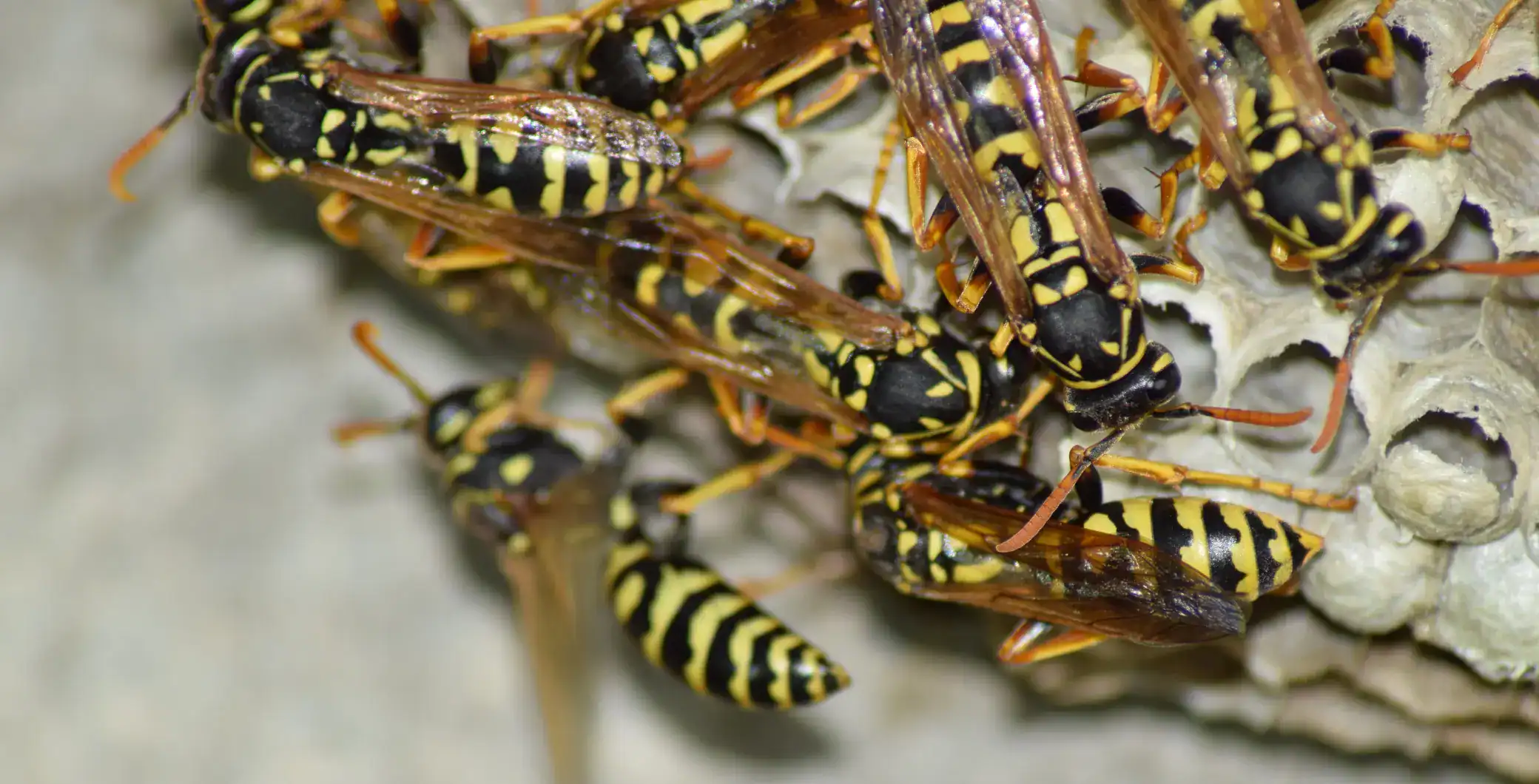
Seeing a lot of wasps recently? Well, you’re not the only one. A Toronto pest control expert says wasp season is in, and gives the latest buzz on why there seems to be a surge.
Every year towards the end of summer, Toronto faces a bright black-and-yellow problem: wasps.
“Dear wasps of Toronto: I am not in fact a giant flower. Please stop circling/buzzing/landing on me every time I leave my home,” one X user posted.
“The first two weeks in September aka when Toronto belongs to the wasps,” another user posted on the platform.
From parks to patios to even in your own backyard, the insect seems inescapable when you’re outdoors.
Daniel Mackie, technical director at GreenLeaf Pest Control, says this year is a busy one for wasps, particularly due to a mild winter which led into a very wet, warm spring.
“Typically, if winter was very cold and had deep frost, a lot of these insects would have been killed naturally by mother nature. But because it was so mild and then it was a very wet, warm spring, a lot of the wasps were in abundance. So, the more that survived the winter, the more insects that survive,” Mackie explained to Now Toronto on Wednesday.
“And then, because it was so damp, there was a lot of food available for these wasps. So, they come out of their hibernation in the spring, and all of a sudden there’s all sorts of insects for them to scavenge, to eat, and it’s very wet, and made a very favourable start for them for their breeding season,” he added.
Mackie says that the end of August and through September is typically when the wasps have reached their capacity, and when they’re typically out in large numbers. As the days become shorter and nights become cooler, they naturally begin preparing for winter, but not before scavenging elsewhere. Because resources like aphids in plants or earthworms in soil become less available, they begin searching for food sources around humans.
“They start to scavenge around our picnic tables and in areas that we hang out because we have drinks that are sugary or we’re eating food that’s high in protein,” Mackie said.
“Our behaviours become more attractive to them because our scraps are what they want, so they’re hanging out where we hang out.”
Mackie warns that humans should be cognizant of the fact that these wasps, specifically of the yellowjacket classification, can become a big nuisance and sting multiple times, in comparison to a honey bee which can only sting once and then dies. He says not only do their stings hurt, but can put many at risk for allergic reactions.
“Although they are very important parts of Mother Nature, they are jerks at this time of the year, and will inflict a very powerful and nasty sting. Typically, there is swelling that’s associated with yellowjacket stings. So, if it happens to be in your face or around your neck, it can cause shortness of breath and restrict your breathing,” Mackie said.
“Most people do have anaphylactic allergies to yellowjackets versus other wasp species or bee species, so they are the highest risk out of all of them,” he added.
He urges people to be both wary and respectful of the insect, remembering to never swat, scream or run away from the wasps, as that can create an alarming environment for them.
“If I’m out somewhere and I see them, I will typically try to sort of gently blow them away. Or slowly wrap things up and walk away,” Mackie explained.
“Cool, calm and collected is the name of the game.”
The season is usually over by November in most cases, Mackie says, and he advises homeowners facing a wasp invasion to never attempt to take down nests or seal them inside, as it could lead to even larger issues such as the insects invading the inside of homes.
“What people will do is they will wait until nighttime, where the wasps are all asleep, and then they caulk and seal the hole. And then what ends up happening is when the wasps wake up in the morning, they have nowhere to go, and most of the time they end up coming into your home and in large numbers,” Mackie said.
“The number one piece of advice we always tell homeowners is call a professional pest control company to have it eliminated. It’s such a low cost to get a wasp nest treated. They’re usually there within 24 hours, it’s taken care of, and you’re safe, and nobody’s going to get stung,” he added.
By signing up, I agree to receive emails from Now Toronto and to the Privacy Policy and Terms & Conditions.












